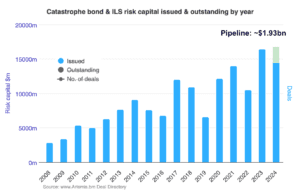Best & Worst BDs for Advisors: J.D. Power — 2022

Financial advisors aren’t getting any younger, and wealth management firms are struggling to manage attrition and attract new talent, according to the J.D. Power 2022 U.S. Financial Advisor Satisfaction Study, released Wednesday.
“With the average age of a financial advisor climbing to 57 this year, wealth management firms that want to continue to grow must do more than just manage advisor attrition rates; they also need to actively create advisor brand evangelists who will attract the next generation of talent,” Mike Foy, senior director of wealth and lending intelligence at J.D. Power, said in a statement.
Many firms today are failing to develop that level of advisor engagement, Foy said, pointing out that several drivers need to be in place for that to happen.
“Notably, firms that are making the right investments in technology, effective marketing support, competitive products and services and have a strong top-down corporate culture are significantly outperforming the competition when it comes to advisor satisfaction and advocacy.”
J.D. Power fielded the study between January and May among 3,039 employee advisors — those who work at an investment services firm — and independent financial advisors — those who are affiliated with a broker-dealer but operate independently.
The study measures satisfaction among both groups of advisors based on six key factors: compensation, leadership and culture, operational support, products and marketing, professional development and technology.
What Makes a Brand Evangelist?
The study found that advisor attrition risk is increasing this year across all categories. Fifteen percent of advisors at wirehouses are considering leaving their firm in the next one to two years. Among independent advisors, 7% fall into the at-risk category.
Nine in 10 advisors classified as brand evangelists — those who reported the highest levels of satisfaction and loyalty to their firms — said their firm’s technology has improved during the past two years.
Moreover, 79% of brand evangelists said their firm offers competitive products and services, and 74% said their firm’s corporate leadership fosters a strong culture.
The study results showed that overall satisfaction among independent advisors is relatively consistent across all advisor tenure levels. In contrast, it drops precipitously among employee advisors, based on the length of their industry tenure.
On a 1,000-point scale, overall satisfaction among employee advisors is 741 in their first 10 years of tenure; it falls to 689 among mid-career employee advisors, and to 658 among those with a tenure of 20 years or more.
J.D. Power said this represents a huge risk as experienced advisors have accumulated significant assets that will very often leave the firm if the advisor departs.
Sixty-two percent of advisors in the study said their preferred work style is either in the office most of the time or in the office full-time — 38% versus24%.
Overall satisfaction scores are highest among those who are currently working in the office full time (791) and for those working in the office most of the time (778).
See the gallery for the highest and lowest satisfaction scores for employee advisors and for independent advisors.
Image: Chris Nicholls/ALM





